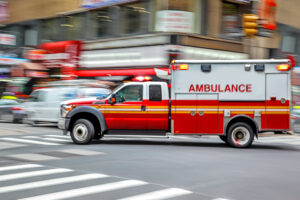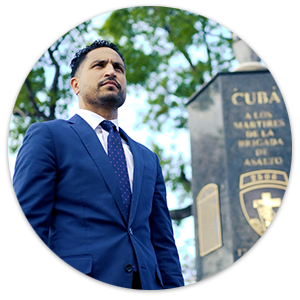In a split second, a catastrophic injury can alter the course of a person’s life and those of their loved ones. Such injuries, which result from accidents like car crashes, workplace incidents, medical malpractice, and more, often lead to severe physical, emotional, and financial consequences. For individuals in Florida, who have suffered catastrophic injuries, seeking legal recourse to recover damages can be a vital step toward rebuilding their lives. The Guzman Firm, PLLC stands as a dedicated partner in this journey, providing expert legal guidance to navigate the complex landscape of catastrophic injury lawsuits.
Understanding Catastrophic Injuries and Their Impact
Catastrophic injuries are those that cause severe, long-term, or permanent damage to a person’s body and overall well-being. These injuries often result in disabilities that require extensive medical treatment, ongoing therapy, and adaptations to daily life. The physical pain, emotional trauma, and financial burden these injuries bring can be overwhelming, affecting not only the victim but their family as well.
In the aftermath of a catastrophic injury, it’s crucial to consider the legal options available to recover damages. Florida law recognizes that those who have suffered due to the negligence or misconduct of others deserve compensation for their losses. However, the process of obtaining these damages is intricate and requires a deep understanding of the legal system.
The Role of The Guzman Firm, PLLC
The Guzman Firm, PLLC, situated in Florida, specializes in catastrophic injury cases and understands the complexities involved in such lawsuits. Our team of experienced attorneys is dedicated to helping clients seek the justice they deserve. With a client-centered approach, we provide personalized attention to every case, tailoring our strategies to suit the unique circumstances of each client.
Requirements for Recovering Damages
Recovering damages in catastrophic injury lawsuits involves several key requirements. These elements are vital in establishing a strong case and securing compensation for the harm suffered:
Duty of Care: The first step is to establish that the responsible party had a duty of care toward the injured individual. This means showing that the party had a legal obligation to act reasonably and prudently to prevent harm.
Breach of Duty: It must then be proven that the responsible party breached their duty of care. This involves demonstrating that their actions or negligence deviated from the expected standard of behavior.
Causation: Linking the breach of duty to the catastrophic injury is essential. It needs to be established that the breach directly caused or substantially contributed to the injuries sustained.
Damages: Lastly, the extent of the damages suffered due to the catastrophic injury must be quantified. This includes both economic damages (medical expenses, lost wages, etc.) and non-economic damages (pain and suffering, emotional distress, etc.).
Navigating through these requirements requires legal expertise and a deep understanding of personal injury law. The attorneys at The Guzman Firm, PLLC possess the knowledge and skills necessary to build a strong case that addresses these elements comprehensively.
The Path to Healing and Recovery
Recovering from a catastrophic injury is not just a legal process—it’s a journey towards physical, emotional, and psychological healing. While pursuing a legal case is an essential step towards seeking compensation, it’s equally important to focus on your overall well-being and recovery. Here are some additional aspects to consider as you navigate this challenging path:
Medical Treatment and Rehabilitation
Your health and well-being should be the top priority. Seek immediate medical attention and follow your healthcare provider’s recommendations diligently. Depending on the nature of your catastrophic injury, you might require surgeries, ongoing therapies, medication, or assistive devices. Prioritize your treatment plan, and don’t hesitate to get a second opinion if necessary.
Emotional Support
Coping with the aftermath of a catastrophic injury can take a toll on your mental health. Feelings of anger, frustration, sadness, and anxiety are natural reactions to such a life-altering event. Surround yourself with a support system of friends, family, and mental health professionals who can help you navigate these emotions. Remember that seeking help is a sign of strength, not weakness.
Lifestyle Adjustments
Depending on the severity of your injury, you may need to make adjustments to your daily life and living environment. This could include modifications to your home to accommodate mobility challenges or acquiring adaptive equipment to regain independence. It’s important to address these needs to enhance your quality of life and overall comfort.
Vocational Rehabilitation
If your injury affects your ability to work, consider vocational rehabilitation services. These programs can help you develop new skills, explore alternative career paths, and make a smooth transition back into the workforce. Financial independence and a sense of purpose are essential for your overall well-being.
Building Resilience
Recovering from a catastrophic injury requires immense resilience. While it’s natural to feel overwhelmed at times, focusing on small victories and setting achievable goals can make the journey more manageable. Celebrate your progress, no matter how incremental it may seem.
![]()
“Richard is deeply invested in his community and is a professional of purpose and integrity. As our legal counsel, his strategic approach, proactive communication, and commitment to our organization’s needs and goals have helped us navigate challenges as well as build important partnerships.”
Dejha C.
![]()
“I go to Richard Guzman because of trust. He was recommended by my dear sister that had the pleasure of working with Mr. Guzman. By having a direct recommendation, I did not doubt that he could ease my worries and that I would be backed by a knowledgeable, trustworthy professional.”
Piero S.
Steps to Take After a Catastrophic Injury Accident in Florida
Catastrophic injury accidents can happen suddenly and without warning, leaving victims and their families grappling with physical, emotional, and financial challenges. When such incidents occur in a bustling urban center like Florida, it’s essential to know what steps to take to protect your rights and ensure the best possible outcome for your recovery. This article outlines a series of crucial steps to follow after a catastrophic injury accident in Florida.
Seek Immediate Medical Attention
The well-being of the injured party should always be the top priority. In the aftermath of a catastrophic injury accident, call 911 or proceed to the nearest hospital or medical facility. Prompt medical attention can make a significant difference in the prognosis and recovery process.
Notify Law Enforcement
Contact the local authorities, such as the Florida Police Department, so they can conduct an investigation and file a report. This report may play a vital role in determining liability and insurance claims later on.
Preserve Evidence
If it is safe to do so, gather evidence from the accident scene. This may include taking photographs of the scene, vehicle damage, skid marks, weather conditions, and any other relevant details. Additionally, collect contact information from any witnesses who can provide statements about what they saw.
Document Your Injuries
Take photographs of your injuries as soon as possible. This will help substantiate the severity of your condition and serve as evidence in your personal injury claim.
Contact an Attorney
Consult with a personal injury attorney who focuses on catastrophic injury cases. They can help you understand your rights, evaluate the circumstances of your accident, and guide you through the legal process. In Florida, you can find experienced attorneys who are well-versed in Florida’s complex personal injury laws.
Notify Insurance Companies
Contact your insurance company to report the accident. Be cautious when discussing the accident with insurance adjusters, as they may use your statements against you. It’s advisable to consult with your attorney before making any official statements to insurance companies.
Preserve Documents and Records
Keep all documents related to your accident and injuries, including medical bills, prescriptions, and receipts for out-of-pocket expenses. These records will be crucial in calculating damages and pursuing compensation.
Determine Liability
Work with your attorney to establish liability. In Florida, determining who is responsible for your catastrophic injury may involve complex legal considerations. An attorney will help gather evidence, interview witnesses, and reconstruct the accident to determine liability.
Consult Medical Specialists
Catastrophic injuries often require specialized medical care and rehabilitation. Seek the advice of medical specialists who can provide the most effective treatment and recovery options.
Pursue Compensation
Your attorney will help you file a personal injury claim seeking compensation for your medical expenses, lost wages, pain and suffering, and other related damages. If necessary, they can take your case to court to ensure you receive fair compensation.
Catastrophic injury accidents can have a devastating impact on victims and their families. In the aftermath of such an incident in Florida, it’s crucial to take the right steps to protect your rights and secure the best possible outcome for your recovery. Seeking immediate medical attention, preserving evidence, contacting an attorney, and pursuing compensation are all vital components of the process. With the help of experienced legal professionals, you can navigate the complex legal landscape of catastrophic injury cases and work towards rebuilding your life.
Dealing with Insurance Adjusters in Miami, FL Catastrophic Injury Claims
In the aftermath of a catastrophic injury, individuals often find themselves entangled in a web of complexities when dealing with insurance adjusters. The process becomes even more intricate in Miami, FL, where the legal landscape and specific requirements can pose challenges for those seeking fair compensation. Understanding how to navigate these intricacies is crucial for ensuring that victims receive the compensation they deserve. This article delves into the nuances of dealing with insurance adjusters in Miami, FL for catastrophic injury claims and sheds light on the essential requirements.
The Unique Legal Landscape in Miami, FL
Miami, FL boasts a legal landscape that is distinctive in its own right, and this distinctiveness extends to the realm of catastrophic injury claims. The state’s legal framework and regulations play a pivotal role in shaping the dynamics of negotiations with insurance adjusters. It is essential for individuals involved in such claims to be aware of the specific legal nuances that could impact the outcome of their cases.
Immediate Steps Following a Catastrophic Injury
When faced with a catastrophic injury, taking immediate steps is crucial for preserving evidence and building a strong case. However, before diving into the legal intricacies, it is imperative to understand the role of insurance adjusters in the process. Insurance adjusters act as representatives of insurance companies and are tasked with evaluating claims, determining liability, and negotiating settlements.
The Documentation Challenge
One of the primary challenges faced by claimants in Miami, FL, is the extensive documentation required to substantiate their claims. Insurance adjusters often demand a comprehensive set of documents to assess the validity of a catastrophic injury claim. This may include medical records, accident reports, witness statements, and opinions. Navigating this documentation maze requires a meticulous approach and a clear understanding of the specific requirements outlined by insurance companies.
Establishing the Severity of the Catastrophic Injury
In catastrophic injury claims, the severity of the injuries significantly impacts the compensation awarded. Insurance adjusters in Miami, FL, scrutinize medical records and reports to gauge the extent of the injuries and their long-term implications. Establishing the severity of the catastrophic injury involves collaboration with medical professionals who can provide opinions on the prognosis, potential future medical expenses, and the overall impact on the victim’s life.
Negotiating the Settlement
Negotiating a fair settlement with insurance adjusters is often a delicate process fraught with potential pitfalls. Miami, FL, adds an additional layer of complexity due to the state’s unique legal environment. Insurance companies may employ various tactics to minimize payouts, including disputing liability, undervaluing damages, or delaying the claims process. Victims need to be vigilant and strategic in their approach, seeking legal counsel to navigate these challenges effectively.
Understanding the Statute of Limitations in Miami, FL
Time is of the essence when dealing with catastrophic injury claims in Miami, FL. The state imposes a statute of limitations, which is the timeframe within which a legal action must be initiated. Failing to adhere to these time constraints can jeopardize the chances of obtaining compensation. Insurance adjusters often exploit these limitations, and claimants must be proactive in initiating legal proceedings promptly.
Collaborating with Legal Professionals
Given the complexities involved, seeking the assistance of legal professionals is not just advisable; it is imperative for claimants in Miami, FL. Experienced personal injury attorneys understand the intricacies of dealing with insurance adjusters and can provide invaluable guidance throughout the claims process. From gathering evidence to negotiating settlements, legal professionals play a pivotal role in ensuring that victims receive fair compensation for their catastrophic injuries.
Acknowledging the Human Element
Beyond the legal intricacies, it is crucial to acknowledge the emotional toll that catastrophic injuries take on individuals and their families. Dealing with insurance adjusters is not just a matter of paperwork; it involves navigating a system that can feel impersonal and overwhelming during a period of intense emotional distress. Recognizing the human element in these claims is essential, and it underscores the importance of compassion and understanding throughout the process.
Catastrophic injuries often result in significant lifestyle changes, rehabilitation needs, and emotional trauma. While insurance adjusters focus on evaluating damages from a financial standpoint, victims and their families grapple with the profound impact on their daily lives. It is imperative to communicate these non-economic losses effectively during negotiations to ensure a comprehensive understanding of the full scope of the damages incurred.
The Role of Advocacy in Ensuring Fair Compensation
Advocacy becomes a powerful tool for claimants seeking fair compensation for catastrophic injuries. In Miami, FL, where insurance adjusters may be accustomed to dealing with numerous claims, having a strong advocate on your side can make a substantial difference. Legal professionals not only navigate the legal complexities but also serve as advocates who passionately fight for their clients’ rights, ensuring that insurance companies recognize the human element and the true extent of the damages.
Degloving Injury: A Complete Guide
Degloving injuries are rare but devastating occurrences that can result in severe disfigurement, nerve damage, and even amputation. When faced with such traumatic events, understanding the nature of these injuries, their causes, effects, and legal avenues for recourse is crucial. In this comprehensive guide, we delve into the intricacies of degloving injuries, shedding light on essential aspects often overlooked.
What Is a Degloving Injury?
A degloving injury refers to the traumatic separation of skin, connective tissue, and sometimes muscle from the underlying structures of the body. This separation can occur externally, where the skin is visibly peeled away, or internally, where the damage may not be immediately apparent.
External Degloving
Externally, degloving injuries manifest as skin and soft tissue being forcibly detached from the body, resembling the act of removing a glove. Common scenarios include scalp degloving from head trauma or limb degloving from accidents involving machinery or sharp objects.
Internal Degloving
Internally, degloving injuries occur without obvious surface wounds. Instead, the trauma causes tissues to separate internally, creating voids filled with fluid. These injuries are challenging to diagnose, often mistaken for deep bruises, yet they can lead to serious complications if left untreated.

Attorney Richard Guzman
Richard Guzman’s expertise focuses on one primary objective: to offer tactical legal analysis, guidance, and result-driven solutions. The Guzman Firm is dedicated to providing you with the knowledgeable and competent counsel you deserve.
How Does a Degloving Injury Occur?
Degloving injuries can result from various accidents, including falls, traffic collisions, and workplace mishaps. Falls can generate shear forces that cause internal degloving, while traffic accidents may lead to external degloving due to immense forces and sharp edges. Workplace accidents involving machinery, tools, or hazardous materials also pose significant risks.
Understanding the Effects of Degloving Injuries
The aftermath of a degloving injury can be complex and multifaceted, with potential complications extending beyond the initial trauma.
Infections: The extensive wounds characteristic of degloving injuries increase the risk of infection, potentially leading to severe complications such as sepsis. Prompt and thorough medical attention is essential to minimize this risk and prevent further harm.
Nerve Damage: Nerves traversing the affected tissues can sustain damage, resulting in sensory disturbances, weakness, and loss of function. While nerve grafts may offer some relief, permanent damage is often unavoidable, impacting the individual’s quality of life and functionality.
Amputation: Oxygen deprivation can cause tissue necrosis, necessitating amputation when blood circulation cannot be restored. The extent of amputation varies, ranging from removal of the affected flap to more extensive procedures. Psychological support is crucial for individuals undergoing such life-altering procedures.
Rehabilitation and Long-Term Care
Recovery from a degloving injury often involves extensive rehabilitation and long-term care. Physical therapy aims to restore mobility, strength, and function to affected limbs, while occupational therapy helps individuals regain independence in daily activities. Additionally, psychological support is vital to address the emotional toll of the injury and facilitate adjustment to any permanent disabilities or disfigurement.
Medical Interventions and Surgical Options
Medical interventions for degloving injuries may include wound debridement, tissue reconstruction, and skin grafting. In severe cases, reconstructive surgery may be necessary to repair damaged tissues and improve cosmetic outcomes. Collaborating with a multidisciplinary team of healthcare professionals ensures comprehensive treatment tailored to the individual’s needs.
Pain Management Strategies
Degloving injuries often result in significant pain and discomfort, requiring effective pain management strategies. Pharmacological interventions, such as analgesics and nerve blocks, may provide relief, while non-pharmacological approaches like acupuncture and physical modalities offer alternative options. A personalized pain management plan considers the individual’s unique circumstances and preferences.
Preventive Measures and Safety Protocols
Preventing degloving injuries involves implementing stringent safety protocols and preventive measures in various settings. Workplace safety regulations, proper equipment maintenance, and employee training programs can mitigate the risk of accidents involving machinery and hazardous materials. Similarly, road safety initiatives and public awareness campaigns aim to reduce the incidence of traffic-related degloving injuries.
Education and Awareness Initiatives
Raising awareness about degloving injuries is crucial to promote injury prevention, early detection, and timely intervention. Educational initiatives targeting healthcare professionals, first responders, and the general public can enhance understanding of these complex injuries and facilitate prompt and appropriate care. Additionally, advocacy efforts advocate for policy changes and resource allocation to support individuals affected by degloving injuries.
Support Networks and Peer Counseling
Navigating the challenges of recovery from a degloving injury can be daunting, but support networks and peer counseling offer valuable assistance. Connecting with others who have experienced similar injuries provides emotional support, practical advice, and a sense of belonging. Peer counselors, trained individuals with lived experience, offer guidance and encouragement throughout the rehabilitation process.
Legal Advocacy and Representation
Securing legal advocacy and representation is essential for individuals seeking compensation for degloving injuries caused by negligence or wrongdoing. A personal injury attorney can assess the circumstances of the injury, gather evidence, and pursue legal action against responsible parties. The legal process aims to hold accountable those liable for the injury and obtain fair compensation for the victim’s losses.
Social and Vocational Rehabilitation
Reintegrating into society and the workforce after a degloving injury requires social and vocational rehabilitation support. Vocational training programs, job placement services, and workplace accommodations help individuals rebuild their careers and regain financial independence. Social support networks offer encouragement, practical assistance, and opportunities for social engagement
Adaptive Technology and Assistive Devices
Adaptive technology and assistive devices play a crucial role in enhancing independence and quality of life for individuals with degloving injuries. Prosthetic limbs, orthotic devices, and adaptive tools help compensate for lost function and facilitate participation in daily activities. Advances in technology continue to drive innovation in assistive devices, offering new possibilities for mobility and autonomy.
If you or a loved one has suffered a catastrophic injury in Florida, it’s important to understand your rights and options. The Guzman Firm, PLLC is committed to helping you navigate the complexities of the legal process, seeking the compensation you deserve. Our team is ready to provide expert guidance, compassionate support, and tireless dedication to securing justice.
Don’t wait—contact The Guzman Firm, PLLC today for a confidential consultation. We are here to listen, strategize, and fight for your rights, ensuring that you can move forward with confidence toward a brighter future.
